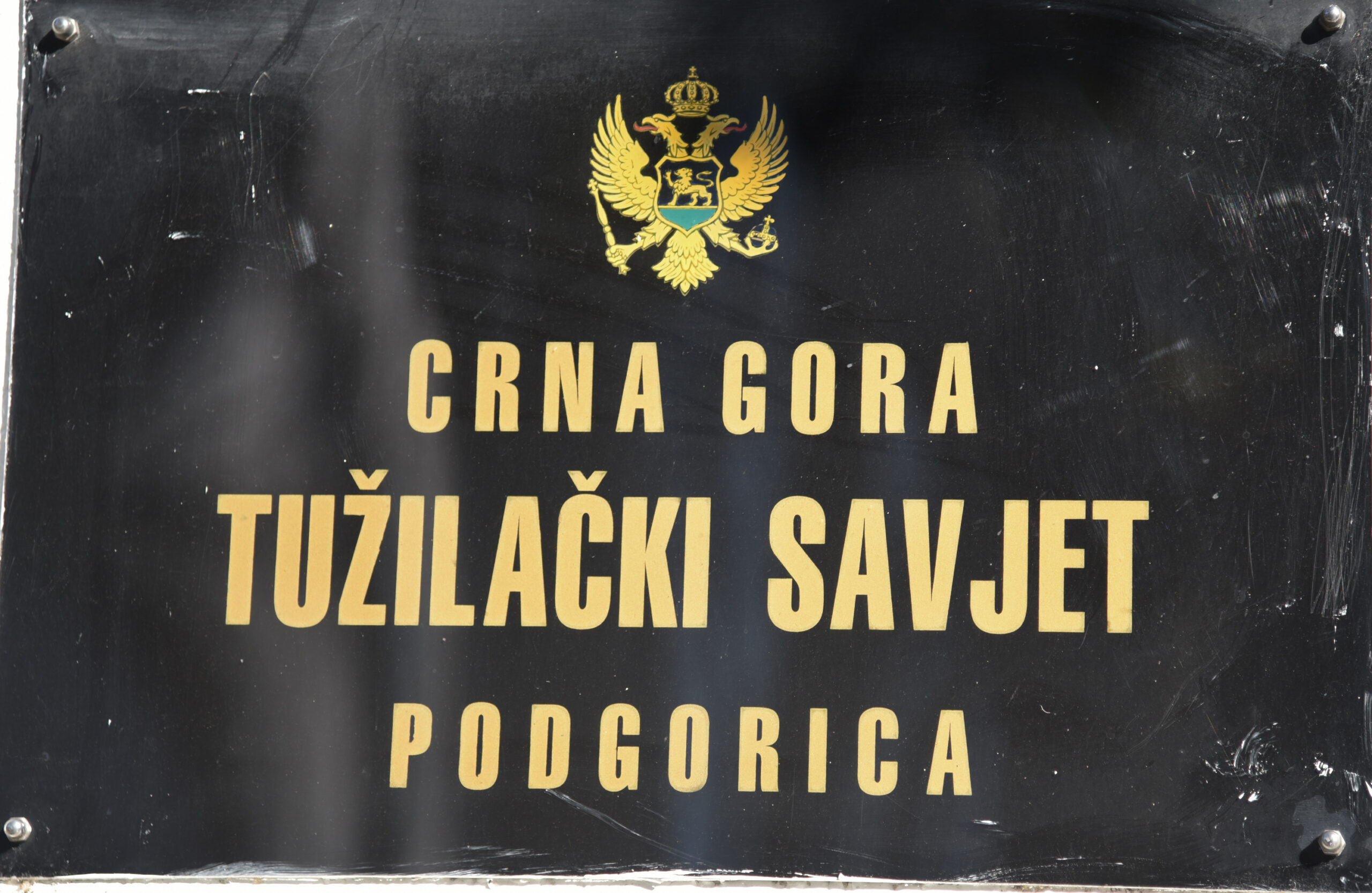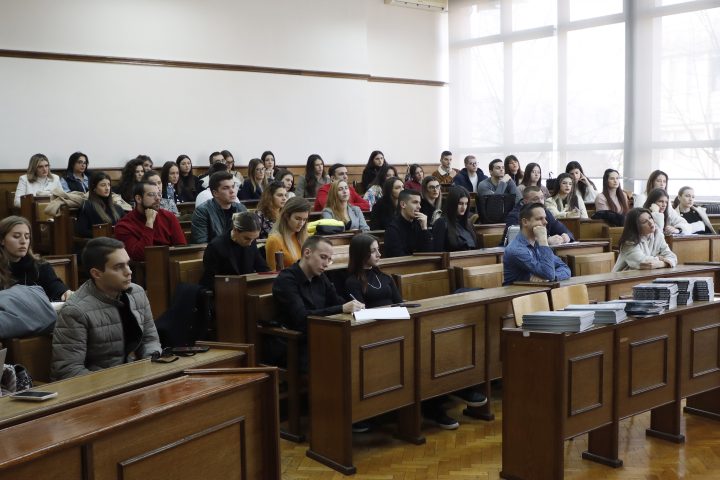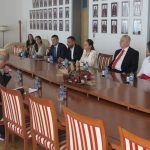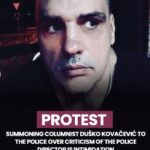
We are requesting a public debate on the Law on the Confiscation of Assets
19/12/2022
PROTEST CAUSED BY THE BEHIND-THE-SCENES PROPOSAL TO AMEND THE LAW ON THE STATE PROSECUTOR’S OFFICE
22/12/2022DISCUSSION WITH STUDENTS ON THE PRACTICE OF INTERNATIONAL CRIMINAL LAW

“Although they are opponents in a war, enemies are still people. The fact that someone has a legitimate right to defend himself does not mean that he can exercise that right by committing crimes.” This was said today at the workshop on the topic of “International Criminal Law in Practice”, organised by the Human Rights Action at the Faculty of Law of the University of Montenegro.
The lecturers were: Olga Kavran, former spokeswoman for the Prosecutor’s Office of the Hague Tribunal, Head of the Communications Department of the Special Tribunal for Lebanon, associate of the Free University in Brussels and Director of IUSTICOM; Nebojša Vučinić, Professor at the Faculty of Law and the Faculty of Political Sciences of the University of Montenegro, former Judge of the European Court of Human Rights; and Tea Gorjanc Prelević, Executive Director of the Human Rights Action.
The workshop gathered more than 60 students from the law faculties of the University of Montenegro, the University of Donja Gorica and ‘Mediteran’ University, as well as the Faculty of Political Sciences of the University of Montenegro. They closely listened to the presentations and later actively participated in the discussion, which included many different opinions that were expressed in the spirit of tolerance and academic discussion.
At the very beginning, those present paid tribute to the recently deceased Director of the Centre for Transitional Justice SENSE, Mirko Klarin, whom many consider the spiritual father of the Hague Tribunal. From the moment of the establishment of that institution, until its very end, Mr. Klarin diligently worked to ensure that the public in former Yugoslavia was accurately informed about its work. He founded and managed the Sense agency, which over time grew into a homonymous Centre. The Centre’s archive is now an irreplaceable source of information about the facts established by the Hague Tribunal.
In the first part of the workshop, Olga Kavran and Nebojša Vučinić spoke about international criminal law and its application in the practice of international courts. They spoke of the development of international criminal law and judiciary, the main features of criminal proceedings carried out before international courts, and the types of evidence used to determine responsibility for crimes. Special attention was paid to the experiences of the International Criminal Tribunal for the former Yugoslavia (the Hague Tribunal) as the first modern international criminal court, and the Special Tribunal for Lebanon as the first international court with jurisdiction over terrorism.
“Detailed and professionally conducted investigations, followed by careful judicial analyses of various evidentiary materials led to the establishment of irrefutable facts before international criminal courts”, said Olga Kavran. She particularly pointed out the importance of “insider” witnesses for determining the responsibility of “those at the top of the chain of command” who actually planned the crimes.
“The bigger the crime, the harder it is to prove”, said Professor Vučinić. He particularly emphasised the importance of the establishment and work of the Hague Tribunal for determining the individual responsibility of the perpetrators of mass crimes in the territory of former Yugoslavia. We all have a tendency to glorify war criminals on our side as heroes. This often leads to them not being prosecuted properly at the national level and never being held accountable for their actions. We have had such examples all over the region, pointed out Vučinić.
In the second part of the workshop, Tea Gorjanc Prelević spoke to students about the prosecution of 8 war crimes cases in Montenegro in the last three decades. She presented the legal aspects of their prosecution, the errors in the application of international humanitarian law, as well as the testimonies of victims of crimes. There had been no political will to prosecute war crimes in Montenegro. Involuntary and, in some cases, erroneous prosecutions were conducted as a result of pressure that was applied by neighbouring states or victims, the media, and non-governmental organisations – said Gorjanc-Prelević.
The workshop was organised as part of the Human Rights Action’s project “Advancing Transitional Justice in Montenegro Thirty Years after the War of the 1990s”, with the support of the National Endowment for Democracy (NED)







 English
English Montenegrin
Montenegrin